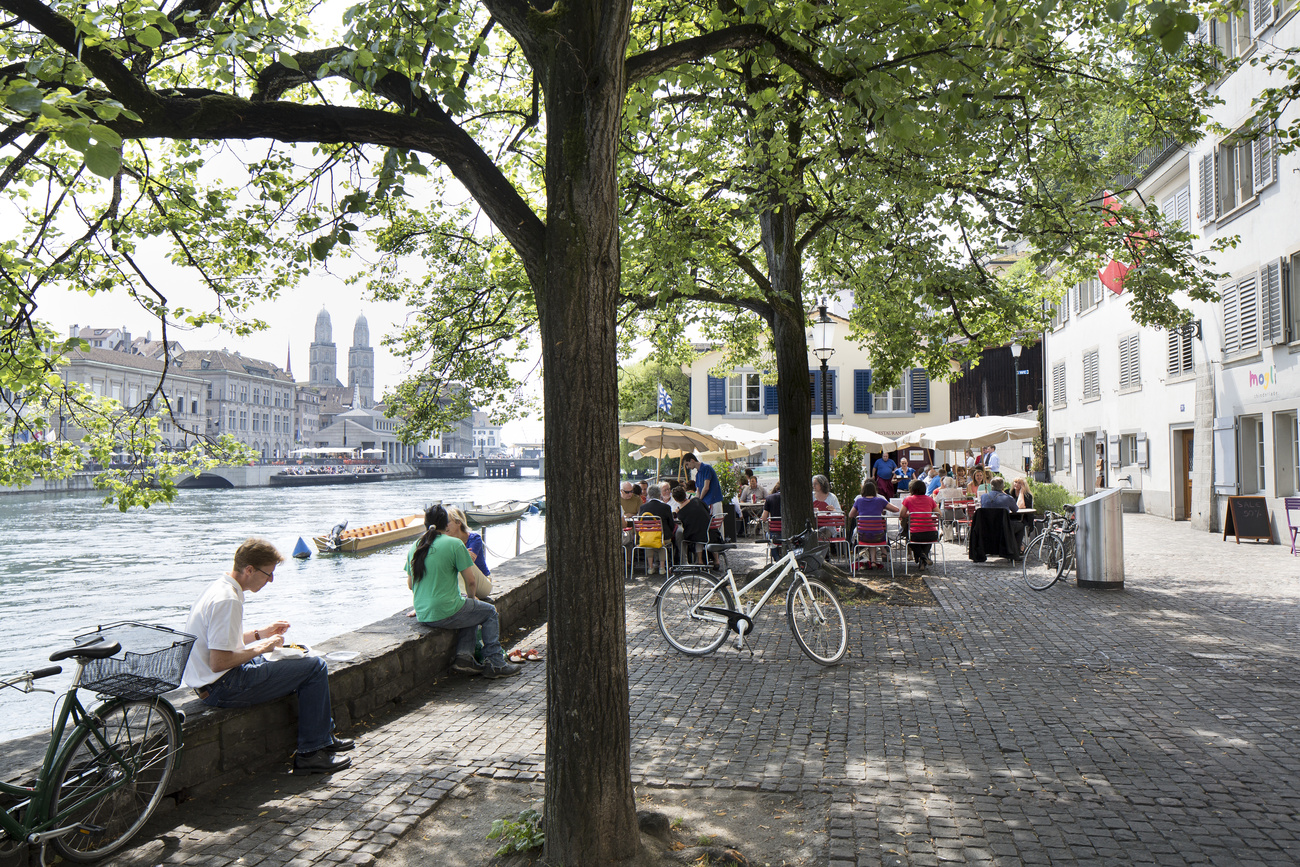
Geneva and Zurich climb ‘world’s most liveable cities’ ranking

The Swiss cities of Zurich and Geneva are the world’s third and sixth best cities to live in, respectively, according to an annual report from The Economist.
Zurich moved up to third place – shared with Calgary, Canada – from seventh in the latest Economist Intelligence Unit (EIU) rankingExternal link published on Thursday, compared with a similar survey from 2021. Geneva rose two places from eighth to sixth.
Vienna grabbed the top spot from New ZealandExternal link city Auckland, which fell to 34th place due to coronavirus pandemic restrictions.
Europe boasted six out of the top ten cities. The Austrian capital was followed by the Danish capital, Copenhagen. Germany’s Frankfurt was also seventh, and the Netherlands’ Amsterdam ninth.
The Economist also ranked Canada highly. Calgary was joined by Vancouver in fifth place and Toronto in eighth. Japan’s Osaka and Australia’s Melbourne shared tenth place.
Stability, healthcare and culture
The EIU index rates living conditions in 172 cities (up from 140 last year) based on more than 30 factors. These are grouped into five categories: stability, health care, culture and environment, education and infrastructure.
Vienna was voted the world’s most liveable city for various reasons, The Economist said: “Stability and good infrastructure are the city’s main charms for its inhabitants, supported by good healthcare and plenty of opportunities for culture and entertainment.”
Zurich and Geneva both scored the highest marks for healthcare. They also both ranked highly for stability and infrastructure.
Mid-sized cities in the wealthiest countries tended to fare well in the survey.
“The top ten cities are also among those with few Covid restrictions. Shops, restaurants and museums have reopened, as have schools, and pandemic-led hospitalisation has declined, leading to less stress on healthcare resources and services, and even the requirement to wear masks is no longer in force in most situations,” said The Economist.

More
The highs and lows of living and working in Switzerland

In compliance with the JTI standards
More: SWI swissinfo.ch certified by the Journalism Trust Initiative




























You can find an overview of ongoing debates with our journalists here . Please join us!
If you want to start a conversation about a topic raised in this article or want to report factual errors, email us at english@swissinfo.ch.